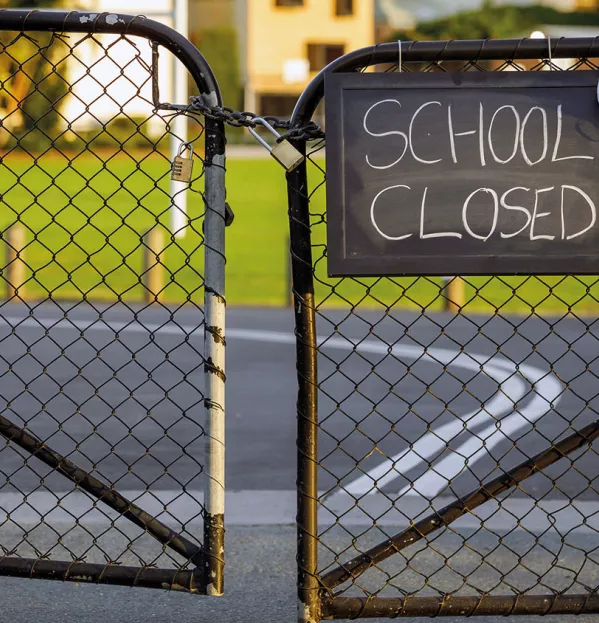Headteachers have bravely faced fear and anxiety

Three weeks in lockdown. Three weeks in which everyone’s freedoms have been curtailed. Three weeks in which our lives have changed beyond all recognition.
But the limits on our actions started long before 23 March. Two weeks before lockdown, large social gatherings were being cancelled; heads’ union the Association of School and College Leaders’ annual conference was the last big event to take place on the education calendar. At Tes, we had to postpone our FE awards with one week to go.
However schools, to the incredulity of many, remain open. Even when they were “closed” , they did not really close their gates: they were told to remain open for children of key workers critical to the Covid-19 response. They became Schrödinger’s schools: closed and open at the same time.
School leaders, seeing what had happened in other countries, had to some extent prepared themselves for closure. They put together work for the children to do at home. Teachers brushed up on their edtech and learned how to do distance learning.
The impact of coronavirus on schools
The practical stuff, although difficult, was easy in comparison with the human stuff. How does anyone even begin to prepare for that? How do you console fearful children who are also having their important rites of passage snatched away from them? How do you reassure those who have exams cancelled that it is going to be alright in the end? How do you even begin to alleviate their concerns about what looks like an uncertain future?
And then there’s the staff. They were frightened, emotionally drained; some vulnerable, others worried about vulnerable relatives. One head had already sadly died from coronavirus before schools closed.
Leading a school in the run-up to closures was about navigating uncertainty, anxiety and sheer frustration. Heads just had to go by instinct and hope and pray that the decisions they were making were the right ones.
There was no training for this kind of experience. There was no manual, no friendly head up the road who had been through it before to lend a hand. School leaders were on their own. Totally on their own. If being a head is the loneliest job in the world, it had got a whole lot lonelier. For a profession used to constant directives, some found the paucity of information from government difficult.
“I found the lack of guidance exhausting. As leaders, we’re so used to jumping through hoops for approval of things,” says Leanne Forde-Nassey, head at The Key Education Centre, in Hampshire, one of four leaders from different settings Tes asked about their experiences.
Others, such as Chris Dyson, head at Parklands Primary School in Leeds, were forgiving, despite having to stay up into the night to adjust plans after the criteria for key workers was not published until gone midnight. “They’re doing the very best they can. They’ve been dropped in a crisis, and they’ve had to act,” he says.
But for Vic Goddard, principal of Passmores Academy in Harlow, Essex, the Department for Education’s actions were unforgivable. “There is information from around the world about the best - or the least bad - way of doing this, and that was never shared with us … I’ve struggled to trust the government for years, but now I trust them even less … I don’t know if I want to work for these people any more.” Sad words from a man who once described being a head as the “best job in the world”.
In the past month, our lives have changed beyond recognition. It seems increasingly unlikely that a simple transition to how things once were will be possible. That may be something to mourn, but it could also be an opportunity to really focus on what matters most: the education of young people.
This article originally appeared in the 10 April 2020 issue under the headline “In an uncertain world, heads’ constancy is more important than ever”
You need a Tes subscription to read this article
Subscribe now to read this article and get other subscriber-only content:
- Unlimited access to all Tes magazine content
- Exclusive subscriber-only stories
- Award-winning email newsletters
Already a subscriber? Log in
You need a subscription to read this article
Subscribe now to read this article and get other subscriber-only content, including:
- Unlimited access to all Tes magazine content
- Exclusive subscriber-only stories
- Award-winning email newsletters